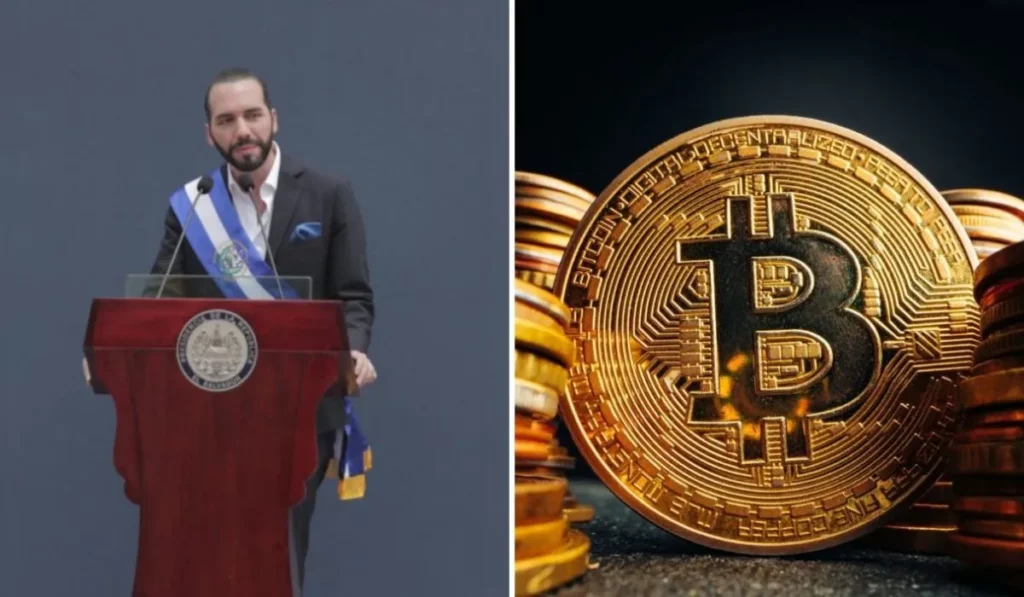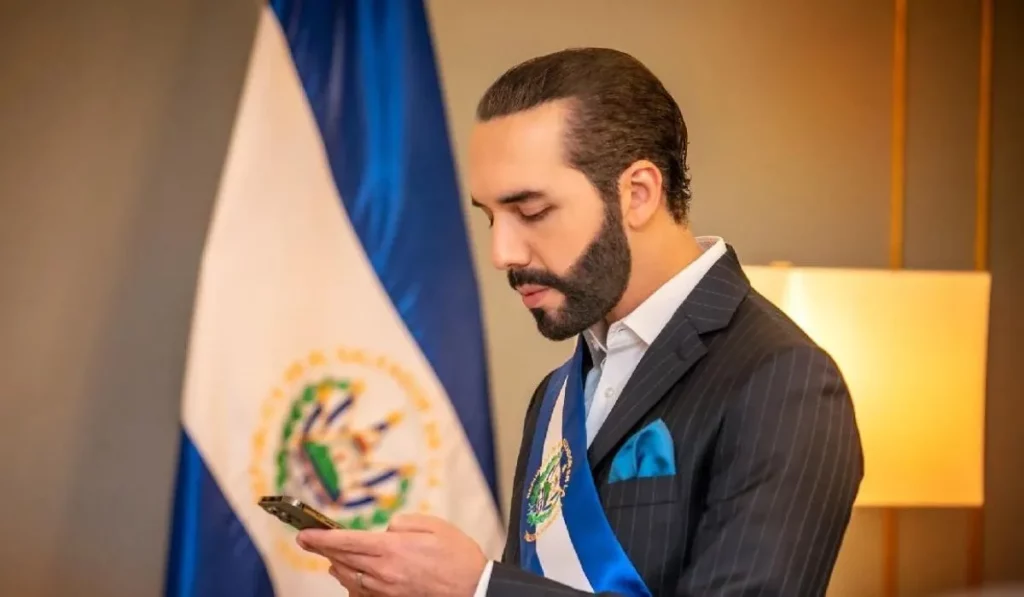Under the progressive and visionary leadership of President Nayib Bukele, the little-known South American nation of El Salvador became the first country in the world to adopt Bitcoin (BTC) as legal tender in September 2021.
The decision to embrace Bitcoin faced mixed reactions. While crypto and bitcoin advocates praised the government for paving the path for a “financial renaissance”, global financial organizations like the International Monetary Fund (IMF) and the World Bank criticized Bukele’s decision.
However, two years on from the historic day, the financial world is starting to acknowledge how Bitcoin transformed the country that was once considered to be one of the most notorious in the world.
Bitcoin Will Drive El Salvador’s Economic Growth, Says VanEck Advisor
Over the weekend, Gabor Gurbacs, an advisor at US-based asset management firm VanEck, went on X (formerly Twitter) to share his thoughts on El Salvador’s decision to adopt BTC as legal tender. While sharing a post by Max Keiser, a famous Bitcoin advocate and former Wall Street broker, he said the cryptocurrency will drive the nation’s economic growth in the coming years.

He advised portfolio managers and asset allocators that with continued economic immigration and capital investment leading to overall growth, El Salvador has the potential to become the “Singapore of the Americas” by mirroring the efforts of the Asian country to become a global financial hub.
The country has experienced a remarkable transformation since making Bitcoin a legal tender over two years ago, which began with the launch of the Chivo Wallet that El Salvaodrians can use to transact in BTC across the country. The government has also tapped into its natural resources, such as hydrothermal power generated by volcanos, to power a Bitcoin mining initiative called Volcano Energy. The supposedly world’s largest crypto mining facility is backed by Bitcoin miners Luxor Technology, who has invested $1 billion into the ambitious project.
Gurbachs predicts that the country’s progressive attitude will lead to a continued influx of immigration and investment, which he believes could also create potential new income streams for its residents.
Although he does acknowledge the inherent risks associated with Bitcoin, like its market volatility and concerns about it being used for illicit purposes like fraud and money laundering, Gurbachs remains optimistic as he contends that these concerns can be mitigated by implementing right regulation and oversight.
ALSO READ:- Crypto Crackdown: How to Spot and Avoid Fraudulent Schemes in The Digital Currency Space
Bitcoin Adoption Has Transformed El Salvador’s Tourism Industry
In a recent interview, El Salvador’s vice president Felix Ulloa shed light on the tight-ended relationship between the country’s Bitcoin adoption and the rebirth of its economy. He pointed out that offering a digital economy with the prospect of participating in a cryptocurrency-led ecosystem has led to many investors flocking to the country, kick-starting a wave of economic growth.
Tourism, the country’s main source of revenue, was hampered by the COVID-19 pandemic. However, the sector has seen a remarkable recovery since 2021, thanks largely to the implementation of Bitcoin as a legal tender. The move has allowed tourists to seamlessly use BTC to pay for goods and services in the country, and they no longer need to go through the hassle of exchanging currency. Thus simplifying transactions for international travelers.
The VP also highlighted the symbiotic relationship between tourism and digital currencies, which has been the cornerstone of El Salvador’s renaissance. The move has not only attracted crypto enthusiasts but also a host of international investors who are eager to make their mark in the evolving financial landscape. Meanwhile, Salvadorian companies and entrepreneurs have embraced cryptocurrencies and are integrating the technology into their services, in turn creating an environment where financial technology and innovation can thrive.
ALSO READ:- Payment Revolution: How IoT is Making Transactions Smarter, Faster, and More Secure
IMF and World Bank Continue to Criticize El Salvador Over Bitcoin Legalization
Despite the progress, the country’s decision to adopt Bitcoin as legal tender has faced significant opposition from global entities, especially the IMF and the World Bank.
Soon after President Bukele signed the executive order legalizing Bitcoin and cryptocurrencies in the country, the IMF voiced concerns over the risk associated with crypto assets, emphasizing issues such as financial integrity, market stability, and consumer safeguarding. The IMF also wanted about the macroeconomic, financial, and legal challenges that may arise from the move and asked the government to conduct a meticulous analysis of its decision.
Moreover, foreign investors have growing concerns about El Salvador’s IMF-supported programs, which are crucial to the country’s economic stability. These investors are now demanding higher premiums for holding the country’s debt, which is a reflection of their unease with its decision to adopt Bitcoin as legal tender.
Meanwhile, the World Bank declined El Salvador’s request for aid in implementing Bitcoin as legal tender. The institution that provides financial support to developing nations expressed concerns about the potential downsides of such a decision.
El Salvador to Build One of the World’s Largest Bitcoin Mining Pools Powered by Renewable Energy
All the criticisms and backlash have not hindered President Bukele’s pro-Bitcoin stance. The country has invested approximately $85.5 million in Bitcoin since September 2021. This figure also includes the $15 million worth of BTC purchased by the government during the recent market dip.
In an ambitious effort to turn the country into a Bitcoin mining hub, El Salvador recently unveiled Lava Pool, a volcano-powered Bitcoin mining endeavor that is part of the Volcano Energy initiative. According to the proposed plan, a 241 MW renewable power generation facility will be developed in the country’s Metapan region that will incorporate several Bitcoin mining farms, anticipated to surpass 1.3 EH/s in computational power, placing Volcano Energy among the top 20 mining pools in terms of hash rate.
Tether, the issuer of the USDT stablecoin, is an equity investor and advisor for the project. USDT is also considered to be a legal tender in the country, giving residents and tourists the unique opportunity to transact in dollar-denominated cryptocurrencies.
Despite the constant criticisms from global entities and environmental groups, who widely express concerns about the potential ecological harm caused by Bitcoin mining, the Salvadoran government remains optimistic in its crypto endeavor. They view Bitcoin as a promising avenue to generate new income sources for its citizens while allowing them to actively participate in the global economy.
At the time of writing, Bitcoin (BTC) is trading at $34,204 – up 0.5% from the previous day’s price.
